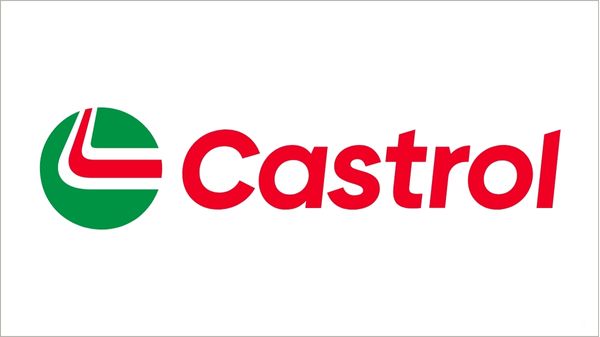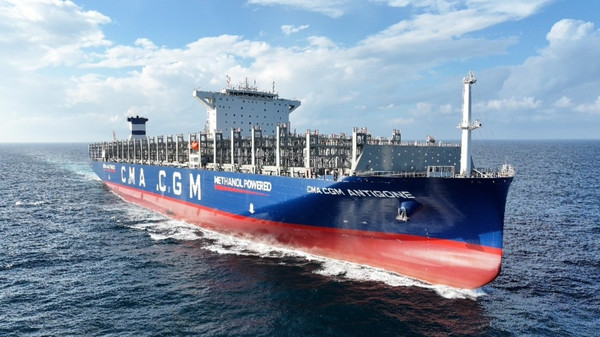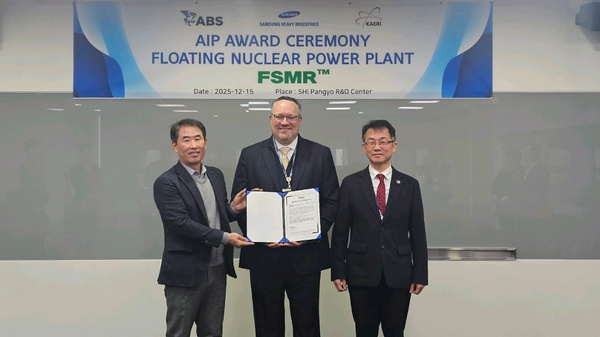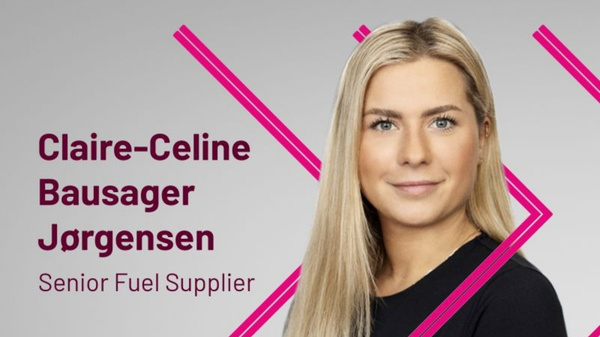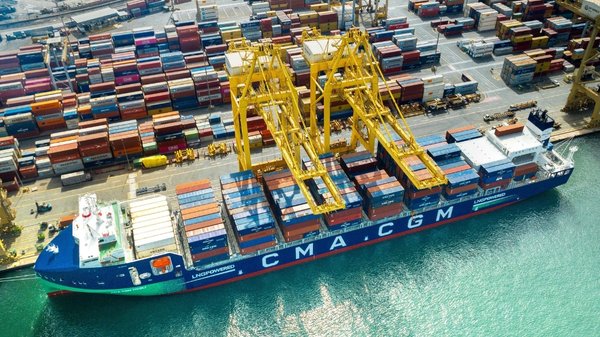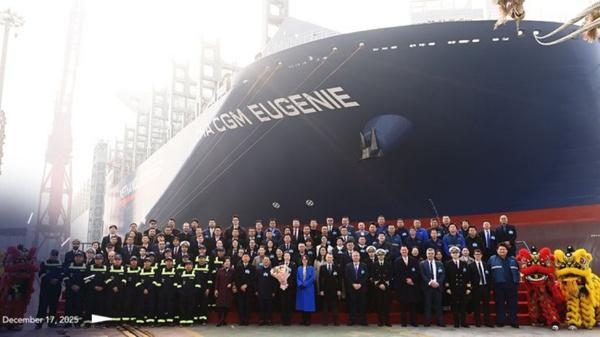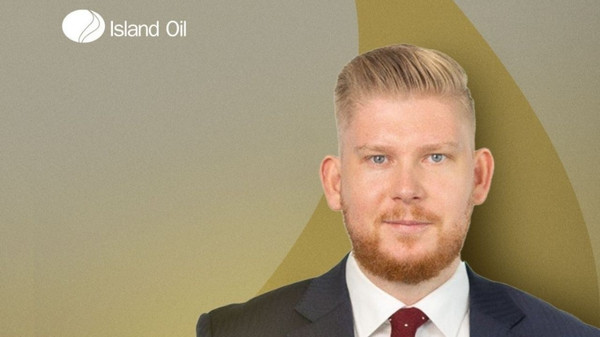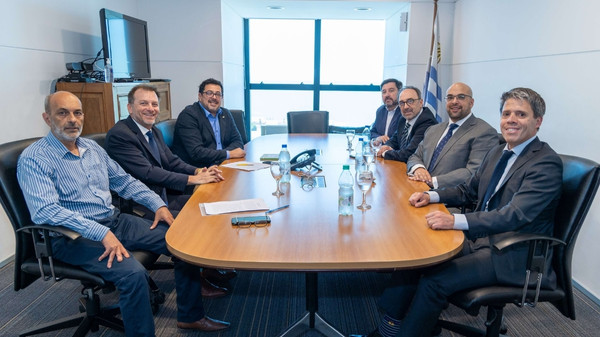Address of the Secretary-General, Koji Sekimizu [pictured], at the opening of the 67th session of the Marine Environment Protection Committe (MEPC 67), 13 to 17 October 2014.
Good morning, distinguished delegates and observers. I am pleased to welcome you all to the sixty-seventh session of the Marine Environment Protection Committee, which promises to be very busy, but I hope will be very productive – with a total of 145 documents submitted under 20 items on the agenda.
Allow me first to comment briefly on general matters of the work of the Organization.
Our traditional World Maritime Day celebration took place here, in our headquarters building, on 25 September. We have used every opportunity throughout this year to widen awareness of the chosen theme of effective implementation of IMO conventions. Relevant to that theme, I wish to refer to the work of the Global Ocean Commission, which recently published its report, titled “From Decline to Recovery: A Rescue Package for the Global Ocean”. You will be able to hear more on the report at the end of your plenary session today from Mr. José Maria Figueres, one of the co-chairs of the report and a Commissioner of the Global Ocean Commission, who kindly accepted my invitation to address you at the end of your plenary session today. In a letter to the co-chairs of the Commission, in which I welcomed the report, I highlighted IMO’s regulatory work, in tandem with capacity-building efforts, to mitigate the threats to the world’s seas and oceans. I also outlined some of the challenges facing the Organization as they relate to the report’s recommendations on sustainable use of the global oceans, which I regard also very important for the future sustainability of international shipping.
On World Maritime Day, I was pleased to receive a message from United Nations Secretary General Ban Ki-moon. He emphasized that in the present time of conflict and crisis in the world, “it is easy to forget that, day in day out, the international shipping industry works quietly and efficiently to keep the wheels of global trade in motion and ensure the timely delivery of the goods and commodities on which we all rely.” He went on to urge all concerned to strengthen efforts to achieve the full and effective implementation of all IMO conventions.
***
Distinguished delegates,
Since your Committee last met, in April of this year, further progress has been made with the Review and Reform process in the Secretariat. I feel particularly encouraged by the efficient manner in which the implementation of the new sub-committee structure has proceeded – all seven restructured sub-committees have now held their first meeting and feedback has been positive.
As regards the ongoing preparations for the mandatory IMO Member State Audit Scheme, which will be rolled out from January 2016 onwards, I have put internal measures in place to strengthen the Secretariat's structure in order to ensure optimal use of the available resources in support of the audit scheme.
***
Distinguished delegates,
I now wish to turn to the important work that remains to be completed at this session. The first is on the draft International Code for ships operating in polar waters (Polar Code).
I am sure you will be pleased to know that at its ninety-third session in May of this year, the Maritime Safety Committee approved, in principle, the draft Polar Code, with a view to adopting it at MSC 94 in November – in conjunction with the adoption of the associated draft new SOLAS Chapter XIV.
The principal remaining task for this Committee is now to finalize Part II of the Code addressing pollution prevention measures and the associated MARPOL amendments. I greatly appreciate the strenuous efforts of the Correspondence Group to progress the work over the past six months and those of the Intersessional Working Group which met last week both coordinated by Lorraine Weller of the United Kingdom. However, there are still several challenges to be overcome at this session, which is the last chance for your Committee to finalize the draft environment part. I would therefore urge you to reach consensus on all the outstanding issues at this session.
A successful outcome will make it possible for MSC 94 later this year and MEPC 68 in May next year to adopt the Polar Code, as we have targeted to do. We should therefore look at 1 January 2017 for the effective entry into force of the code. This will be timely to demonstrate to the outside world that the Organization is once again taking the lead as a global standard-setter – by pioneering the first-ever internationally binding regime covering the full range of vessel design, construction, equipment, operational and training matters, environmental protection and search and rescue in the remote and inhospitable waters surrounding the two poles.
***
As regards to the Ballast Water Management Convention, a number of further positive developments since MEPC 66 are noteworthy.
Four additional States (Japan, Jordan, Tonga and the Republic of Congo) have become Contracting Parties. The total number of ratifications or accessions now stands at 42, representing 32.02% of the gross tonnage of the world’s merchant fleet. I have also been informed that other countries have made progress with their national ratification process, raising the prospect of the 35% threshold being met in the near future.
The new Sub-Committee on Implementation of IMO Instruments, which held its first session in July, finalized its work on the intensively discussed draft Guidelines for port State control under the 2004 Ballast Water Management Convention. I therefore urge the Committee to resolve the outstanding issue of sampling and indicative analysis of ballast water and to adopt these long-awaited Guidelines at this session.
Also at this session the Committee will also be addressing industry concerns pertaining to the effective implementation of the Convention, including legal clarity over the type approval of ballast water management systems. In this context, the Committee will be invited to consider a study on the implementation of the ballast water performance standard described in regulation D-2 of the Convention. Conducting this study, for which the Secretariat has developed a draft plan and terms of reference, should contribute to further facilitating implementation and encouraging ratification of the Convention.
The Organization has made every effort to promote the Ballast Water Management Convention in the 10 years since it was adopted (in 2004). The Secretariat has successfully implemented the multi-million dollar, GEF/UNDP/IMO GloBallast project, assisting developing countries to prepare for the implementation of the BWM Convention. The Committee has adopted 14 associated Guidelines and also approved numerous ballast water management systems that make use of Active Substances. In addition, the Assembly unanimously adopted a pragmatic implementation schedule for existing ships (resolution A.1088(28) on Application of the BWM Convention).
I am confident that the Committee will take account of these excellent achievements when it undertakes to make further progress on the important subjects I have just outlined and I trust that throughout this week’s discussions the Committee will stay firmly focused on the ultimate objective of the Convention – to prevent the global spread of invasive aquatic species through ships’ ballast waters and sediments, which is inherently linked to the expansion of international shipping as world trade continues to grow and we do it under the IMO system, that is the implementation of agreed global standards and IMO measures under the IMO Convention.
***
Distinguished delegates,
Two additional Member States – France and the Republic of the Congo – have ratified the Hong Kong Convention for the safe and environmentally sound recycling of ships since your last session, bringing the total number of Contracting Parties to three (including Norway). I do hope that many more countries will feel encouraged to proceed to ratification, particularly in view of the steadily growing number of ships that voluntarily carry on board the Inventory of Hazardous Materials which will become a mandatory requirement upon the Convention’s entry into force. Against this background, there is certainly urgency for the Committee to resolve some remaining issues concerning threshold values, exemptions and bulk listings applicable to the materials to be listed in the Inventory.
Once again I urge Member States that have not yet done so to ratify or accede to the Hong Kong Convention and thus promote its entry into force in the near future for the benefits of the environment, the shipping industry and the ship recycling countries.
***
Air pollution and related matters pertaining to improved ships’ energy efficiencies and the reduction of greenhouse gas emissions from international shipping will continue to demand your close attention on a number of fronts. Allow me to highlight briefly the most important issues, in no particular order of priority.
First, the Committee is expected to respond to concerns raised at MSC 93 last May about the safety risks associated with poor fuel oil quality. The key issue for you to consider at this session concerns an important matter of policy as there are diverging views on what quality control measures might be appropriate, in addition to the existing provisions in MARPOL Annex VI, and whether there would be a need for an amendment to the Annex. An alternative option could be to develop non-mandatory guidance, based on good practice taking account of existing procedures in some of the world’s leading bunkering ports, but I would like to urge the Committee to consider how such non-mandatory guidance could effectively be implemented and enforced without legally binding requirements. Fuel oil quality is of paramount importance for safe shipping and to avoid pollution and IMO should regulate this.
Second, I welcome the progress report of the correspondence group tasked with the mandatory assessment of the global availability of so-called ‘compliant’ fuel oils meeting the required global cap of 0.50% sulphur content in the target year of 2020. I look forward to the timely submission of the group’s final report to MEPC 68 and hopefully, for the adoption of the terms of reference at that same session so that the review may commence in earnest next year.
Further in this context, IMO has already undertaken the necessary regulatory work in preparation of the anticipated growing worldwide interest to use LNG as a high-efficiency ship fuel with low environmental impact. Last month, the Sub-Committee on Carriage of Cargoes and Containers, at its first session, finalized the draft text of the IGF Code, a new international code of safety for ships using gases or other low flashpoint fuels, together with the draft texts of associated SOLAS amendments to make the Code mandatory. Approval of the Code and SOLAS amendments is expected at MSC 94 in November and subsequent adoption at MSC 95 in June next year.
Third, the Committee is expected to consider a definition of Black Carbon, which is important in the context of work to address the adverse impact of ships’ emissions on the Arctic.
Fourth, I am pleased that the Secretariat has already received EEDI data from several members of IACS covering nearly 200 ships to date. This encouraging first step could pave the way for the establishment of a centralized database on the energy efficiency standard attained by newly constructed ships. EEDI data will support IMO’s work on the mandatory review of technology developments, which is required under regulation 21.6 of MARPOL Annex VI. Phase one of this review is due to start on 1 January 2015 and it is therefore timely that the Committee gives earnest consideration at this session to the most appropriate way forward for this mandatory review.
Fifth, as part of the ongoing work on further technical and operational measures for enhancing energy efficiency of international shipping, the Committee is expected to continue its detailed consideration of the core elements of a possible data collection and reporting scheme for existing ships, building on the progress made intersessionally by a correspondence group.
Sixth, the Committee is expected to review and approve the Third IMO Greenhouse Gas Study (2014). A presentation on the study will take place in the Main Hall at lunchtime tomorrow. It is encouraging to see that contribution from international shipping to the Global GHG emission was reduced from 2.7% to 2.2% in 2012 and that the positive impact of IMO agreed emission reduction measures is highlighted in the study. Shipping has a great potential for growth to meet the demand of the world economy but shipping has also, a great potential to significantly reduce GHG emissions, while achieving further growth of maritime transport.
Last but not least, the Committee will receive an oral report from Mr. Ntuli, the chairman of the Ad Hoc Expert Group on the facilitation of transfer of technology for ships and technical cooperation relating to the improvement of ships’ energy efficiency. The group held its second meeting on Thursday and Friday of last week. Further in this context, I am pleased that the Secretariat is making good progress with the development of a project identification document for a GEF/UNDP-funded two-year pilot project to assist developing countries in the implementation of new energy efficiency measures for ships adopted by IMO.
All this and other IMO on-going work on greenhouse gas emissions, such as the accelerated implementation of the Energy Efficiency Design Index to extend its application to a wide range of ship types, is ample evidence of the Organization’s contribution to address climate change concerns. Most recently, these concerns were the focus of a one-day Climate Summit convened by UN Secretary-General Ban Ki-moon in New York, on 23 September, under the banner “There is no Plan B for climate change action as there is no Planet B”. We, at IMO, can certainly be confident as well as proud to publicize our ground-breaking contribution to climate change abatement with regard to international shipping.
***
Distinguished delegates,
Other important items featuring on your agenda this week equally call for your careful consideration.
I wish to single out, in particular, the review of the nitrogen and phosphorus removal standards contained in the 2012 Guidelines on the implementation of effluent standards and performance tests for sewage treatment plants (resolution MEPC.227(64)). The matter requires careful consideration as it has implications for the protection of the designated Special Areas under MARPOL Annex IV, from harmful sewage effluent discharges by passenger ships.
With regard to the adoption of amendments to mandatory instruments at this session, I would highlight, the following, in particular:
- the draft amendments to regulation 43 of MARPOL Annex I to prohibit ships operating in Antarctic waters from carrying heavy grade oil on board as ballast for use as fuel when outside the Antarctic area;
- the draft amendments to the Appendix of MARPOL Annex III on criteria for the identification of harmful substances in packaged form;
- the draft amendments to regulations 2 and 13 of MARPOL Annex VI and to the Supplement to the International Air Pollution Prevention (IAPP) Certificate, related to engines solely fuelled by gaseous fuels; and
- the draft amendments to MARPOL Annex V – regarding Record of Garbage Discharge.
***
I now like to conclude my address by wishing the Committee every success in its deliberations during the next five days and the very best of luck to its able Chairman and Vice-Chairman, Mr. Arsenio Dominguez of Panama and Dr. Naomi Parker of New Zealand. I am confident that all of you will give your full support and cooperation to them so that this session will achieve the desired, fruitful and balanced outcomes. The Secretariat, on its part, will provide the usual, high-standard support services.
I will now hand over to your Chairman and look forward to welcoming you all to the customary drinks reception in the Delegates’ Lounge after close of business this evening and following the address of Mr. José Maria Figueres, Commissioner of the Global Ocean Commission.
Thank you.

